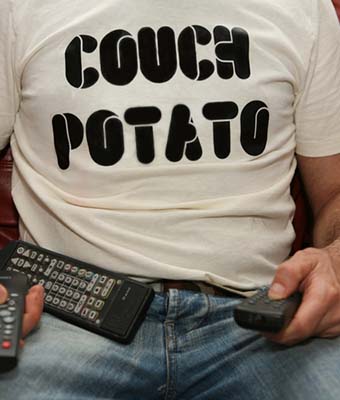The great outdoors couch potatoes never get to know

 David Mungoshi:Shelling the Nuts
David Mungoshi:Shelling the Nuts
There was a time when mothers did not worry so much when they couldn’t see their young children for any length of time. It was always assumed that the little ones were always going to be adventurous and venture out a little.Growing up as streetwise urchins in urban areas or as little rustics with coarse hands and cracked soles, we never really worried too much about mischief befalling us. This is in contrast to what sometimes happens these days – children disappearing in public places and later turning up dead somewhere.
This is not to say there were no horror stories doing the rounds.
I remember days when, if when walking along a lonely country road in what were then the tribal trust lands (today’s communal areas), you saw the dust raised by a vehicle that you didn’t recognise, you fled into the forest and hid until after the vehicle had gone past.
This was because of all the stories doing the rounds about strange white people from the Belgian Congo who could turn you into a pig by injecting you with a strange drug. These occasional scares did not dampen our lust for the outdoors.
On the streets of Bulawayo’s locations life was full of hustle and bustle and there were many colourful characters on the landscape. I remember one old man that everyone called Mbokodo.
I cannot really say how he got that name, but I can make a pretty good guess.
The name was probably a nickname and may have had something to do with the fact that no one we knew could throw a stone as far as Mbokodo did. Before you annoyed him you had to make sure you were at a safe distance.
Mbokodo lived out in the open and always seemed enviably free. Like a tortoise he carried all that he had around with him. It was rumoured that in another life he had been a great sangoma, and that he had made a lot of money.
The greasy old bag that he carried around with him was rumoured to be loaded with huge sums of money.
Another wild person that we loved to tease was a vagabond that everyone called uSimakade (the Ancient of Days). The man had so many wrinkles on his face we all thought him very old. Yet he walked with no stoop whatsoever. And he never gave way to traffic on the roads, choosing instead to take the middle of the highway and walk with a stiff dignified swagger.
When the sun was setting and we went indoors before coming out again to play out on the street, it always seemed that Simakade had a life that we could only dream about. He could walk away in any direction and disappear for days on end only to reappear at some point to regale whoever had the time to listen with tales of his wondrous wanderings.
There was also a boy who lived just across the infamous Mazai River of Bulawayo at a place where they washed the grisly buckets with the foul bodily expulsions of a whole residential area somewhere in Western Commonage. The place had the smell of rotten eggs, hence its being named after eggs.
This boy was always dressed in tatters and did not bother taking a bath ever. At least that was what we thought. He did not go to school and so was totally illiterate. We called him Elliot, and though our mothers would have killed us had they known the company we kept. He was quite the hero in certain circumstances.
Few boys could be as accurate with the catapult as he was. Whenever we went bird-hunting, his home-made pouch soon filled with the birds he shot down with his catapult. There was no competition; he always won hands down.
In later years I realised that Elliot had always got the better of everyone because he was a child of the outdoors.
He knew the birds and their habitats and could move with ghostly stealth without our feathered friends ever detecting his presence.
The result was the same if we tried to catch birds for our cages. His long wavy sticks wound with bird lime always seemed to do so much better than anyone else’s.
Sometimes we rode our fathers’ bicycles and went fishing in Umguza River, and when the fish didn’t bite we lay on the sand and fantasised about all sorts of things. We also went into the bush in search of whatever wild fruits were in season and it never occurred to us that anything could happen to us, no matter how far from home we might be.
We were free as the air that we breathed and we made use of our freedom by enjoying life outdoors.
Granted, we heard stories of business people and ritual killings. We also heard about grinding mills and bus engines that could sigh like a weary person and how they sometimes actually talked and asked to be allowed some rest.
Of course whoever told such stories always had heard them from someone else and so on and so forth. Those were the days!
We roamed free and wild within limits. You could not, of course, loiter around white areas without getting into trouble. Since we tended to be independent and adventurous, our mothers did not have to worry about lunch on Saturday afternoons or during the school holidays. When we went out to play, it was always a marathon and somehow, hunger kept its distance.
Things have changed, although some will say that they have changed for the better. Instead of the venturesome boys and girls of old we now have couch potatoes that would never leave the house if they had their way.
My online dictionary says a couch potato is “a person who spends much time sitting or lying down, usually watching television”. It also says that a couch potato is “a lazy person whose recreation consists chiefly of watching television and videos”. To this we can add all those savvy young ones who walk around with headphones because it is “cool” to do so.
In this era of climate change, damage to the ozone layer and pollution, we have unbelievable numbers of people including many adults, whose lives are governed by these gadgets. They watch television all day and never tire of the bombardment of advertisements and politically correct news that is spewed forth all day and all night.
The same item is repeated over and over again with so-called experts expressing their clouded opinions as if they were proven fact. Regrettably, this culture driven by consumerism and the entertainment syndrome is all that today’s children seem to care about.
What do they do indoors when they are not at school or at some wild party? They sit on sofas with lots of cushions and bowls of popcorn as if they are in a cinema. The inevitable fizzy drink or artificial juice is nearby and they continually sip from huge containers that take straws.
This is their idea of the much sought-after lazy life, a life in which everything is kicking and it’s Ebenezer time day in and day out. It is even too much to ask them to carry their own plates to the kitchen sink or contribute to the life of the family in any meaningful way.
These couch potatoes don’t even know their own immediate environs, let alone the garden outside! That is a great pity.
I know just how enraptured my grandchildren are whenever I take them out on a moonlit night and point out the moon and the stars to them. They produce joyous peals of laughter when raindrops go thud on their foreheads. Out in the country they find the goats fascinating, the cattle too and rural recipes.
Couch potatoes cannot recognise garden flowers such as the one called yesterday, today and tomorrow, and they get baffled and mesmerised by the aromatic queen of the night. I am beginning to think that the nature study that we learned at school in my time was not such a bad idea.
In the last four years of primary school we used a textbook called “The Outdoor World” and got to know, for example, that a mongoose does not succumb to snake bite no matter how potent. We learned about the honeybee and a flower called Belladonna Amarylis (The beautiful lady, Amarylis).
We also went down to the river to learn about optical illusions and why the fish was never where your eyes said it was. Few of us had allergies because we breathed a lot of healthy fresh air out there. The age of television, the app and video games has destroyed activities in the great outdoors, and couch potatoes are much the poorer for it.
David Mungoshi is an applied linguist, social commentator, a poet and novelist.








Comments